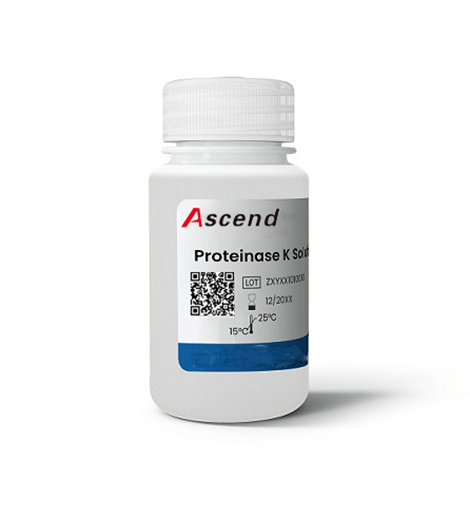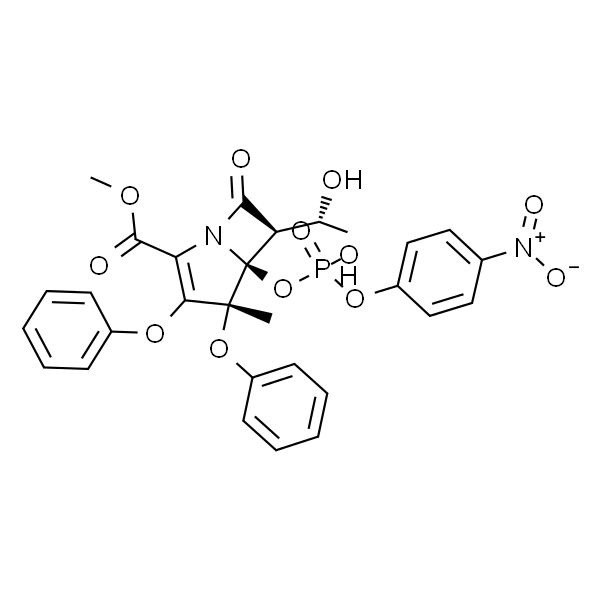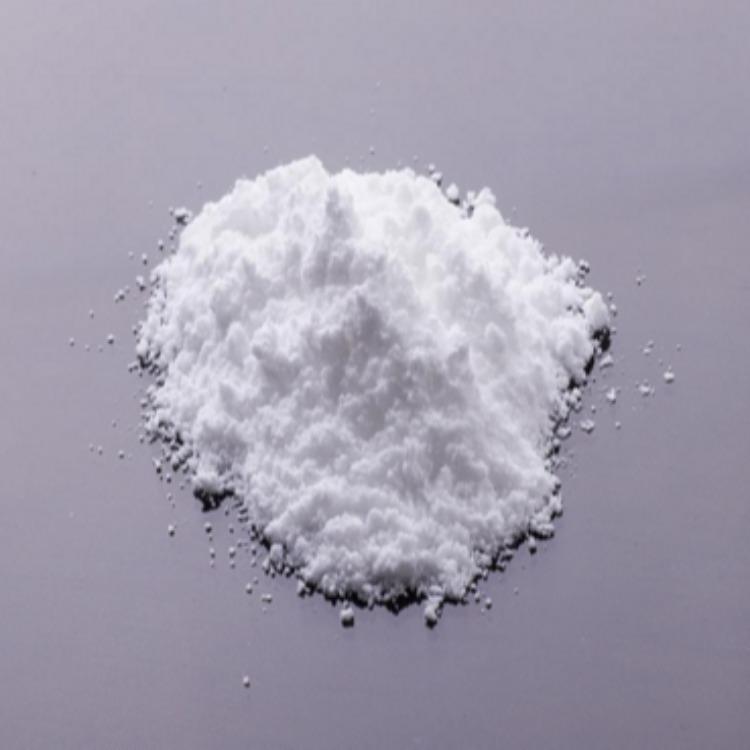


Proteinase K
Proteinase K (from Tritirachium album) is a nonspecific protease of the serine protease family. Proteinase K is used for the cleavage of proteins in nucleic acid preparations. Mainly used for nucleic acid purification or removal of nucleases.
Activity:
(Haemoglobin, pH 7.5; 25 °C) 30 mAnson-U/mg
Foreign activity:
RNAse and DNAse not detectable
Optimum temperature:
+65 °C.
Activators:
Denaturating agents like SDS (0,5-1 %), urea.
- SKU:
- Category: Nucleic Acid Extraction Kit
What is Proteinase K?
Proteinase K is a powerful proteolytic enzyme isolated from Candida albicans with high specific activity and is a key reagent for DNA extraction. Proteinase K is a nonspecific protease of the serine protease family.
The enzyme is active in a wide pH range (4~12.5) and high temperature (50~70°C) and is used for the isolation of plasmid or genomic DNA and RNA. In DNA extraction, the main function is to enzymatically hydrolyze the histone bound to nucleic acid, so that DNA is free in solution, and then different methods are used for extraction to remove impurities and collect DNA. Neither chelating agents such as EDTA nor detergents such as SDS can inactivate it. Proteinase K stock solutions are typically 10 mg/ml or 20 mg/ml. Store at -20°C. The proteinase K solution is colorless and transparent, and should not be used if precipitation occurs.
Properties of Proteinase K:
Proteinase K is stable over a wide pH range: 4.0-12.5.
Proteinase K is active under high temperature and denaturing conditions.
Proteinase K is used for the cleavage of proteins in nucleic acid preparations. Mainly used for nucleic acid purification or removal of nucleases.
Proteinase K is active under a variety of reaction conditions, including elevated temperature and the presence of SDS.
The general working concentration of proteinase K is 50-100 μg/ml.
Proteinase K is a serine protease with broad cleavage activity. It cleaves the carboxy-terminal peptide bonds of aliphatic and aromatic amino acids. The enzyme is purified to remove RNase and DNase activities. Because proteinase K is stable in urea and SDS and has the ability to degrade native proteins, it has a wide range of applications, including the preparation of chromosomal DNA for pulsed electrophoresis, Western blotting, and the removal of nucleases in DNA and RNA preparations.
Applications of Proteinase K:
In DNA extraction, the main function is to enzymatically hydrolyze the histone bound to nucleic acid, so that DNA is free in solution, and then different methods are used for extraction to remove impurities and collect DNA.
Proteinase K is very useful for the isolation of highly native and non-destructive DNA or RNA since most microbial or mammalian DNases and RNases are rapidly inactivating enzymes.
Proteinase K is commonly used in molecular biology to digest proteins, remove contamination, and inactivate DNases and RNases that would otherwise degrade desired DNA or RNA samples. Proteinase k is suitable for this application because the enzyme is active in the presence of protein-denaturing chemicals such as SDS and urea, chelating agents such as EDTA, hydrogen sulfide reagents and trypsin or chymotrypsin inhibitors.
Proteinase K is used to destroy proteins in cell lysates (tissue, cell culture cells) and to release nucleic acids.
Proteinase K can also be used to describe proteins: Due to the specificity of proteinase K cleavage, characteristic fragments of proteins can be obtained, which are useful for determining protein structure and function.
Supplier of Proteinase K:
GENETURE is a group company focus on the field of clinical diagnosis and life sciences,provide one stop solution of Nucleic Acid Extraction and Analysis,including solution of COVID-19. Main products including: Nucleic acid extraction or purification kit,Automatic nucleic acid extractor, PCR system, PCR kit, Magnetic beads, and lab consumables of 96 well deep plate,Magnetic rod comb,PCR tube,PCR plate,Pipette tips,centrifuge tubes.etc.
If you have any requirements or questions about Proteinase K, please feel free to contact us.
Additional Information
Activity: (Haemoglobin, pH 7.5; 25 °C) 30 mAnson-U/mg
Foreign activity: RNAse and DNAse not detectable
Optimum temperature: +65 °C.
Activity at +65 °C is ca. 12 x higher than at +25 °C. Over +65 °C, inactivation due to denaturation.
Activators: Denaturating agents like SDS (0,5-1 %), urea.
Inhibitors: Inhibition with Hg2+-ions, DFP, PMSF and phenol. Not inhibited by EDTA, sulfhydryl reagents and trypsin or chymotryps ininhibitors.
Stability: pH 4.0-12.5. pH optimum: 8,0.
Also stable even when denaturing agents, e.g. SDS and urea are present.
Stabilisers: Ca2+-ions (1-5 mM) prevent autolysis.
Send an Inquiry
Your email address will not published. Required fieled are marked.
Related Products
Check out other related DNA/RNA Extraction Products
